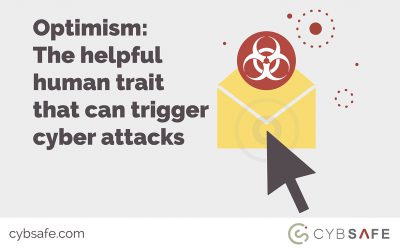Rewind
All the content from last year’s PeepSec, Impact and flagship industry events
Email prankster catches Morgan Stanley CEO with a fishy tale
Financial News
How supplying cybersecurity training can turn workers into your greatest defence
Elite Franchise Magazine
The Optimism Bias In Cyber Security
The optimism bias is an age-old human trait essential to our well being. The optimism bias in cyber security, however, causes security problems... In 2015, financial services giant Prudential ran an experiment they called ‘magnets’. The company labelled a series of...
Implementing effective cyber security training for end users of computer networks
Cyber security is a concern for all modern organizations. These organizations cannot achieve their cyber security goals through hardware and information technology (IT) workers alone, so all employees who use computer networks must be trained on the knowledge, skills...
The human factor in cybercrime and cybersecurity
A Research Agenda publication aiming to stimulate research on the human factor in cyber crime and cyber security. This book offers examples of unanswered research questions and methods and datasets that could be used for future studies.
GDPR Compliance Checklists Leave Us Vulnerable To Data Breaches
GDPR compliance has become a key goal for businesses around the globe. But those hoping to achieve GDPR compliance are missing the point entirely – and are probably vulnerable to large-scale data breaches as a result. From 25 May 2018, GDPR comes into play. As the...
Talking Heads Q&A: Oz Alashe, founder CybSafe
FSTech
HSBC Trust in Technology report
HSBC
How employees transform security from risk to reward
SMEweb
Behavioural science and security
Digitalisation World
Podcast: How to beat cyber crime within your organisation
EM360
What we know, and don’t know, about GDPR
IDG Connect
Banks’ defences hold firm in global cyber attack
Financial News
UK general election: Hacking a very real threat to British political parties and voters
International Business Times
Five simple ways to avoid getting Staley-ed
Financial News
From paternalistic to user-centred security: Putting users first with value-sensitive design
Usable security research to date has focused on making users more secure, by identifying and addressing usability issues that lead users to making mistakes, or by persuading users to pay attention to security and make secure choices.However, security goals were set by...
If Google and Facebook can get scammed, how do you protect a small business?
The Guardian
Hacking the UK general election might be possible but ‘highly unlikely’
SC Magazine
The UK’s 13 most promising cybersecurity startups
Tech World
CybSafe uses Behavioural Science to Reduce Cyber Security Risk
Compare The Cloud
Finding security champions in blends of organisational culture
Security managers define policies and procedures to express how employees should behave to 'do their bit' for information security. They assume these policies are compatible with the business processes and individual employees' tasks as they know them. Security...

